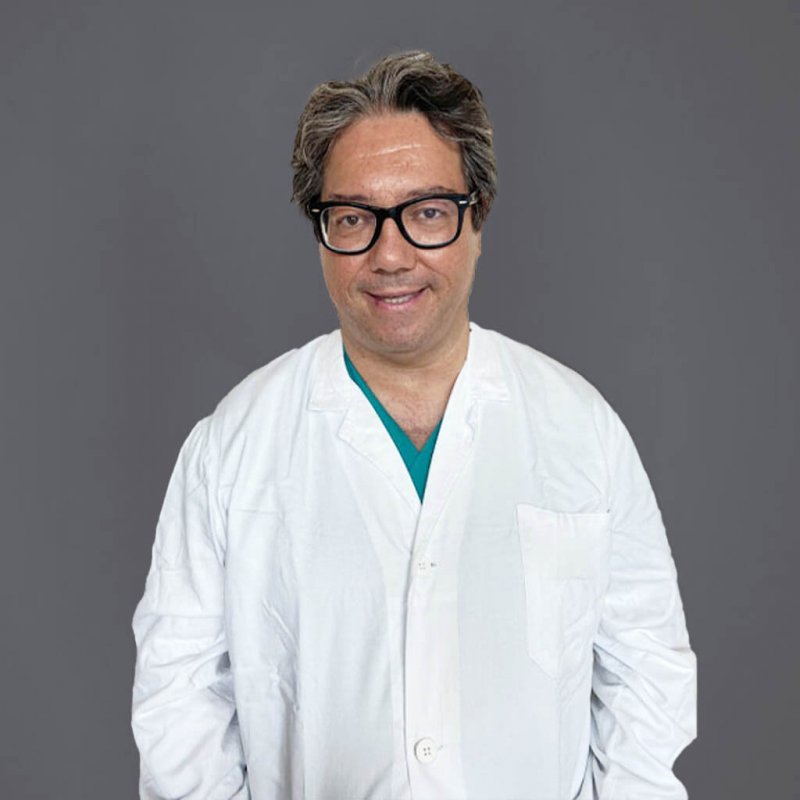Gastroesophageal reflux: causes and remedies

Publication date: 01-03-2023
Updated on: 02-03-2023
Topic: Gastroenterology
Estimated reading time: 1 min
Gastroesophageal reflux is a very common disorder, can be occasional or chronic, that occurs when stomach acid backs up into the esophagus typically causing burning behind the sternum and acid regurgitation.
This situation occurs especially at overly large and elaborate meals, in a supine position or by bending the torso and may be accompanied by acidity and heaviness in the stomach. Sometimes the symptoms of this disease may affect other systems and therefore be difficult to interpret.
In most cases, this is not a serious condition, but proper detection and treatment is important to avoid more serious consequences. We discuss it with Dr. Ugo Elmore, director of the Oncologic and Minimally Invasive Surgery of the Digestive System and Peritoneum program at the Gastrointestinal Surgery Department of Ospedale San Raffaele.
What is gastroesophageal reflux disease?
Gastroesophageal reflux disease (GERD) is the set of symptoms and complications caused by the rise of gastric contents into the esophagus.
The passage between the esophagus and the stomach is regulated by the presence of a complex anatomical and functional region called the esophago-gastric junction, which performs the activity of a valve. In healthy individuals, this high-pressure zone allows the transit of food to the stomach and limits the rise of acid/bile content.
Throughout the day, particularly after heavy meals, anyone experiences occasional episodes of "physiological" reflux, which remain completely asymptomatic and consequence-free. However, when these events intensify in amount or duration, the patient may experience pain, caused by the activation of nerve endings, and the esophageal mucosa may be damaged, more or less reversibly.
What are the symptoms?
In most cases, gastroesophageal reflux disease is paucisymptomatic and can be kept under control through simple lifestyle and dietary adjustments and/or medical therapy. In a small percentage of cases, however, a broader diagnostic framing is required.
Typical symptoms include:
- heartburn, which is a burning sensation felt in the region commonly identified as the "mouth of the stomach" and behind the sternum, sometimes with posterior radiation and interscapular pain. This symptomatology is similar to that of cardiac infarction so, in the first instance, it is always necessary to rule out cardiological issues;
- regurgitation, described as the perception of rising gastric contents in the mouth, resulting in a bitter sensation.
There is also a wide spectrum of "atypical" symptoms that are often difficult to diagnose and treat, including:
- dry cough,
- halitosis,
- asthma,
- discomfort in the throat,
- hoarseness,
- laryngitis.
What are the causes of reflux?
Our body is equipped with various defense systems to counteract reflux, but when the delicate balance between protective and favoring factors is broken, this condition occurs.
The most common cause of gastroesophageal reflux disease is loss of the function performed by the esophago-gastric barrier, which in turn is due to a structural defect, resulting in increased acid production, or alterations in esophago-gastric motility.
Other favoring or aggravating factors include:
- increased pressure in abdomen mainly due to obesity, constipation, respiratory problems, work or sports activities;
- pregnancy;
- supine position;
- hiatal hernia, which occurs in association with gastroesophageal reflux disease in about half of the cases. In this case, part of the stomach "lips" from the abdomen into the chest, weakening the defensive action of the lower esophageal sphincter valve and promoting the rise of gastric contents into the esophagus.
Why is it important not to underestimate reflux?
It is crucial not to underestimate reflux and its complications, since the mucosa of the esophagus, during exposure of acid/biliary material, activates a series of defensive mechanisms that lead the cells to undergo changes, a phenomenon referred to in medical jargon as "metaplasia."
The most serious expression of this phenomenon is the so-called "Barrett's esophagus", a lesion that predisposes to evolution into esophageal cancer.
How is reflux disease diagnosed?
Symptoms alone are not sufficient to make a diagnosis of GERD, but they are helpful in raising suspicion. Therefore, it is necessary to report them to the doctor to perform all necessary investigations.
To define gastroesophageal reflux disease and its degree of severity, it is indicated to perform:
- Esophageal transit x-ray, a radiological study to visualize the upper gastrointestinal tract by taking a contrast agent by mouth;
- Esophagogastroduodenoscopy, performed using a flexible endoscope to directly assess the morphology of the esophago-gastric junction, evaluate the mucosa of the esophagus, and take biopsies if necessary;
- pH-impedancemetry, by which, for 24 hours, a thin probe is placed trans nasally that is able to calculate the number, type and extent of refluxes;
- high-resolution esophageal manometry, by means of a thin trans nasal probe equipped with special sensors, allows the study of the motility of the esophagus and lower esophageal sphincter.
Reflux remedies: the importance of diet and lifestyle
The first approach is the adoption of some simple behavioral and dietary norms:
- maintain a normal weight or lose weight in patients with BMI (body mass index) > 25;
- wait 2-3 hours after a meal before going to bed and sleep with the head elevated;
- avoid large, high-fat meals that promote gastric overdistension;
- avoid, or at least limit, the intake of spicy foods and drinks containing chocolate, caffeine or sugary, carbonated drinks and alcohol;
- avoid sports activities that result in increased intra-abdominal pressure (e.g., weight lifting);
- maintain good bowel regularity;
- stop smoking.
Treating reflux with medication
Medical therapy is necessary in patients who do not benefit from daily adjustments. Among the different categories of drugs, the most popular and well-tolerated are the so-called "pump inhibitors (PPIs)," which act on acid production by the stomach wall.
Other categories of drugs that can be used, including in combination, are "antacids" that have the function of neutralizing gastric acid and "prokinetics" that increase the mobility of the walls of the esophagus and stomach favoring their emptying.
When is it necessary to visit a specialist?
When the 2 previous therapeutic approaches have been ineffective, a gastroenterological surgical examination is recommended.
Not all patients with GERD are candidates for surgery: generally surgery is proposed for young patients with long life expectancy, in cases of intolerance or poor compliance with medical therapy, or in the presence of voluminous hiatal hernias.
However, it is necessary to carefully evaluate each case and plan the appropriate approach on the individual patient after he or she has performed all the indicated investigations.
What does the surgery consist of?
Surgery for GERD is called "fundoplication" or antireflux plastic and aims to restore the malfunctioning antacid barrier. This is a short-term surgical procedure, usually performed with a minimally invasive technique and usually requiring a few days of hospitalization. Variants of technique for this surgery are chosen based on the individual patient's characteristics and the surgeon's preferences.
The surgery offers good quality-of-life results through good control of typical reflux symptoms and prevention of complications such as severe esophagitis, esophageal ulcers and stenosis, bleeding, and precancerous lesions.

